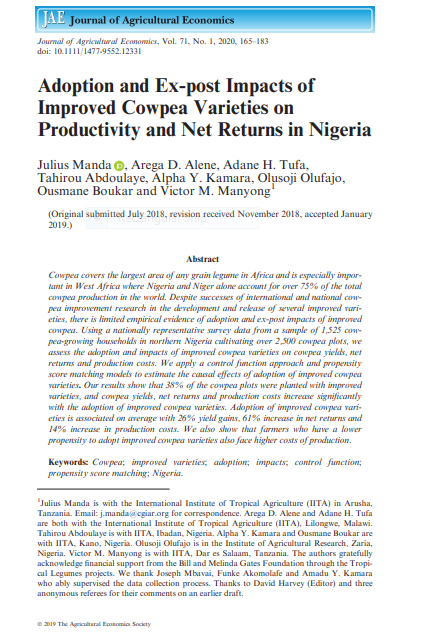Adoption and ex-post impacts of improved cowpea varieties on productivity and net returns in Nigeria
Summary
Cowpea covers the largest area of any grain legume in Africa and is especially important in West Africa where Nigeria and Niger alone account for over 75% of the total cowpea production in the world. Despite the successes of international and national cowpea improvement research in the development and release of several improved varieties, there is limited empirical evidence on adoption and ex-post impacts of improved cowpea. Using nationally representative survey data from a sample of 1,525 cowpea-growing households in northern Nigeria cultivating over 2,500 cowpea plots, we assess the adoption and impacts of improved cowpea varieties on cowpea yields, net returns, and production costs. We apply a control function approach and propensity score matching models to estimate the causal effects of adoption of improved cowpea varieties. Our results show that 38% of the cowpea plots were planted with improved varieties, and cowpea yields, net returns, and production costs increase significantly with the adoption of improved cowpea varieties. Adoption of improved cowpea varieties is associated on average with 26% yield gains, 61% increase in net returns, and 14% increase in production costs. We also show that farmers who have a lower propensity to adopt improved cowpea varieties face higher costs of production.
Open resource Download resource Access resource on external site

